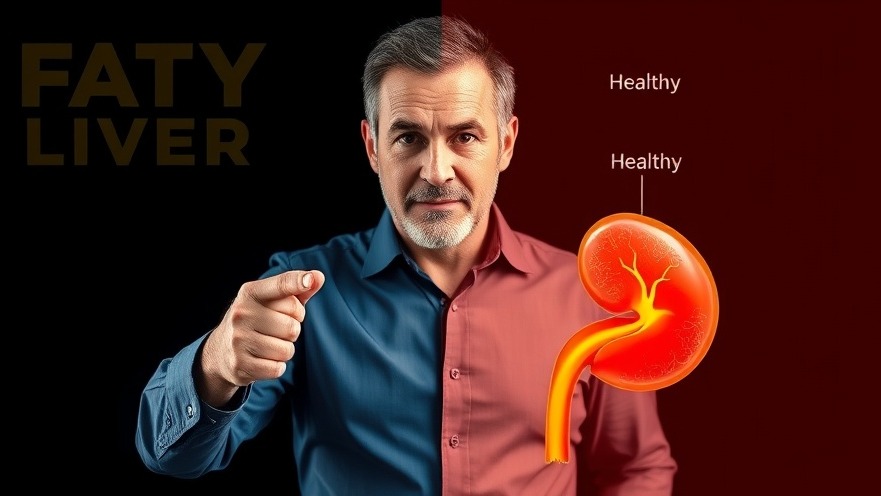
The Surprising Link Between Diet and Stress Relief
In today's fast-paced world, stress seems unavoidable. Whether it's from work, relationships, or daily responsibilities, many are on the lookout for solutions to alleviate the pressure. Interestingly, research reveals that not only does stress affect our dietary choices, but conversely, our diet can significantly impact our stress levels. The psychobiotic diet, which emphasizes gut health and mental wellness, has emerged as a beacon of hope for those seeking to manage their stress effectively.
Understanding Stress and Its Impact on Our Lives
Stress can manifest in various ways, affecting both mental and physical well-being. The symptoms include anxiety, depression, headaches, and even severe conditions like high blood pressure. As cortisol—the primary stress hormone—increases during stressful episodes, people often find themselves craving unhealthy foods high in sugar, salt, and fats. These cravings can lead to a vicious cycle, worsening overall health and increasing stress. In fact, research shows that about 32% of individuals following a psychobiotic diet reported reduced stress levels, compared to just 17% who did not change their diets.
Exploring the Psychobiotic Diet
The core principle of the psychobiotic diet is its impact on gut-brain communication. In essence, the foods we eat can influence the signals sent from our gut to our brain, potentially leading to reduced feelings of stress. This is crucial in understanding how dietary changes can play an effective role in managing stress. Emphasizing fiber-rich, nutrient-dense foods, the psychobiotic diet encourages individuals to consume:
- Whole Grains: Oats, barley, quinoa
- Prebiotic Fruits: Apples, bananas, berries
- Prebiotic Vegetables: Onions, leeks, cabbage
- Fermented Foods: Sauerkraut, kefir, kombucha
- Legumes: Beans, chickpeas, peanuts
These groups of foods are linked not only to improved gut health but also to better mental clarity and emotional resilience.
How to Integrate Stress-Relieving Foods into Your Diet
Incorporating these foods into your daily routine may seem challenging, but it can be done deliciously and creatively. Start your day with oatmeal topped with fresh apple slices and maybe a sprinkle of cinnamon. Lunch could consist of a vibrant salad featuring chickpeas, onions, and a homemade vinaigrette. These small changes can lead to significant improvements in how you manage stress.
Foods to Avoid for Better Stress Management
While focusing on beneficial foods, it’s equally important to acknowledge those that can exacerbate stress. Foods high in refined sugars and unhealthy fats can spike your energy. Still, they create a crash that leads to increased stress levels. By reducing the intake of processed snacks and sugary beverages, you can better regulate your mood and overall mental health.
The Power of a Holistic Approach
Combining a psychobiotic diet with other stress management techniques can create a holistic approach to wellness. Whether it's through mindfulness practices, exercise, or social connections, nurturing your mind and body strengthens resilience to stressors. Think of ways to enhance your meal preparation with mindfulness: enjoy each bite, savor the flavors, and appreciate the nourishing aspect of food.
Future Trends in Gut Health and Mental Well-Being
Research continues to unveil fascinating connections between gut health and mental well-being. Therapeutic diets, particularly those rich in psychobiotic foods, may offer innovative ways to address mental health challenges. By promoting gut health, we might not only improve physical wellness but also cultivate a more stable emotional landscape. As future studies are conducted, understanding the gut-brain axis will likely become a cornerstone of both nutritional guidance and psychological interventions.
Your Next Steps Towards Reducing Stress
As you consider altering your dietary habits, remember that small, manageable changes will pave the way for sustainable habits. This is about making informed decisions that prioritize your health. Experiment with new recipes, explore local markets for fresh ingredients, and find joy in nourishing your body.
Stress is a part of life, but that doesn’t mean we can’t take proactive steps to reduce its impact. Embrace the psychobiotic diet and watch your stress levels decrease!
 Add Row
Add Row  Add
Add 




 Add Row
Add Row  Add
Add 

Write A Comment